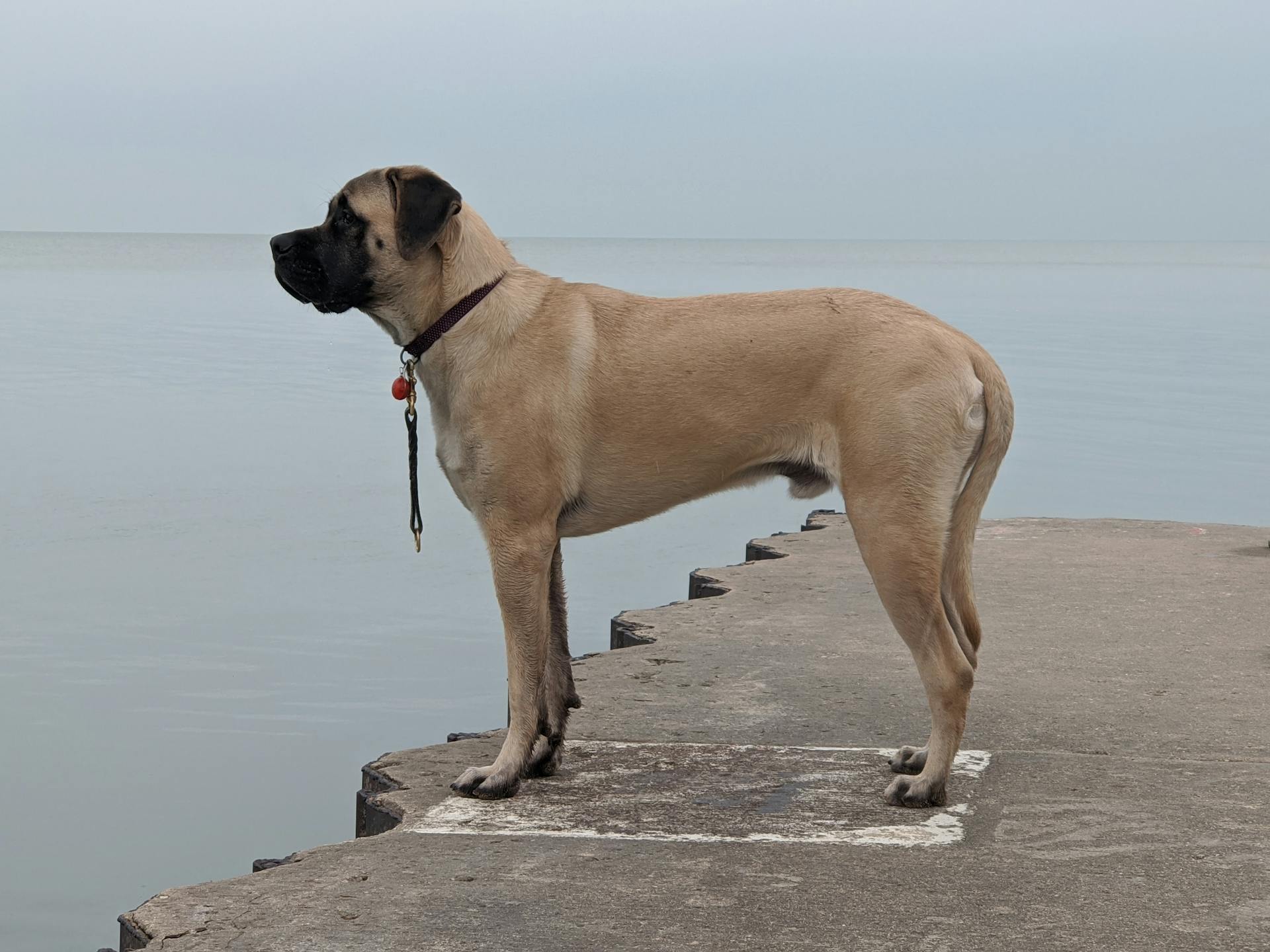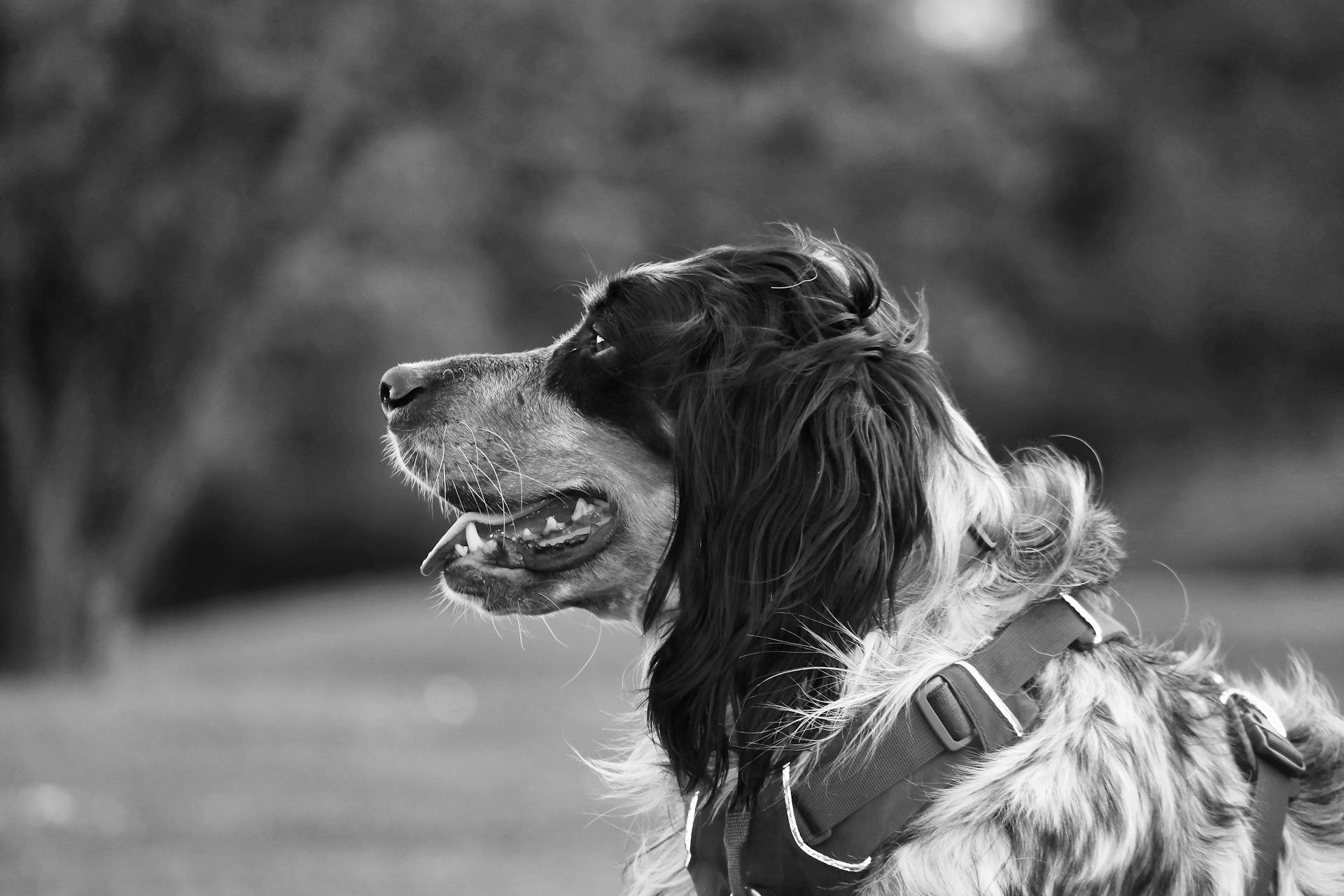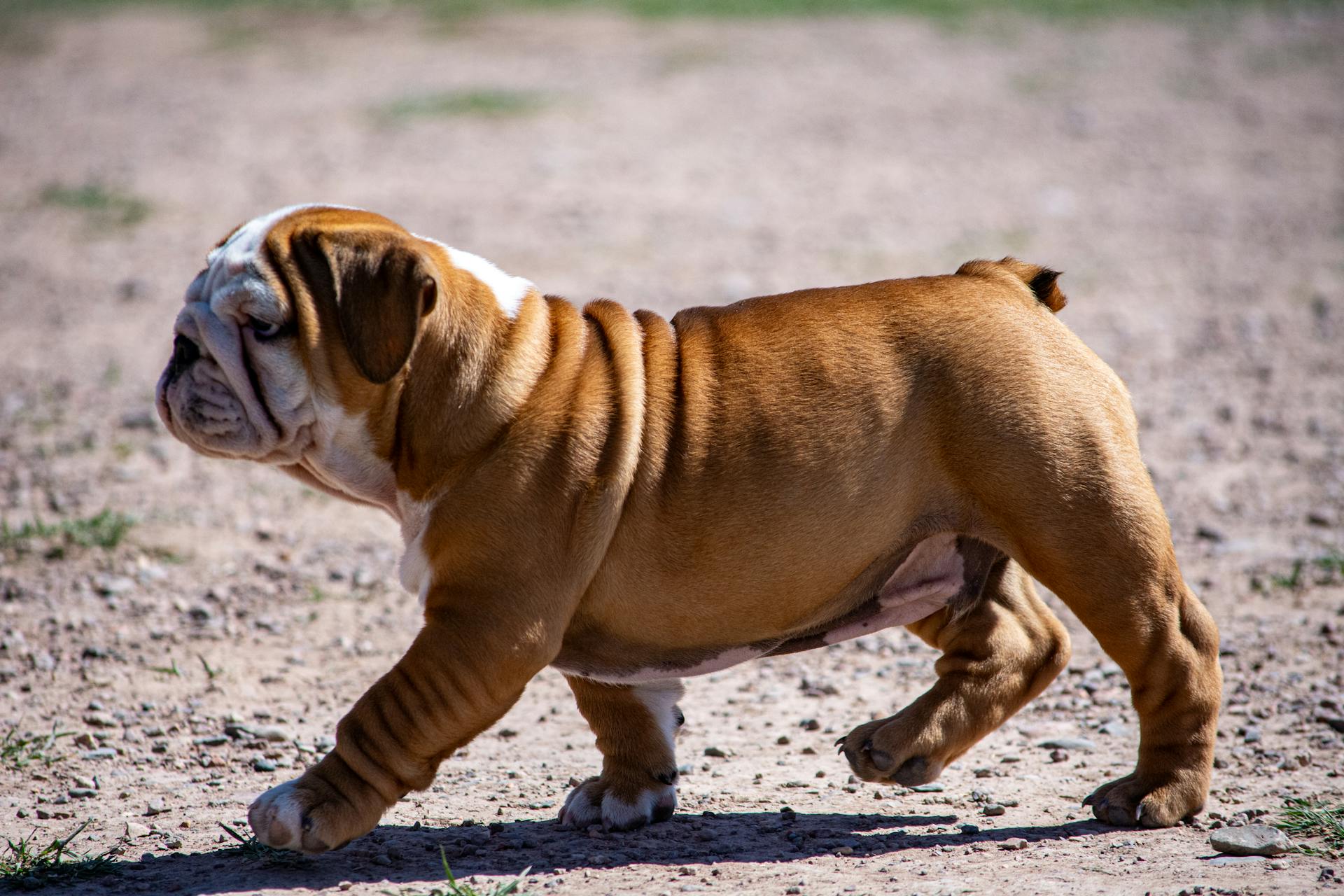
The English Mastiff has a rich and fascinating history that spans thousands of years. They originated in England in the 16th century.
Their ancestors were likely the ancient Molossus, a massive breed from Greece. These early dogs were known for their size and strength.
The English Mastiff was bred to guard estates and fight in battles. They were a popular choice among the nobility due to their intimidating appearance and fierce loyalty.
In the 19th century, the breed became a favorite among English aristocrats, who prized their gentle nature and loyalty.
Mastiff History
The English Mastiff has a rich history that dates back thousands of years. They were first bred in England in the 16th century.
Their ancestors were likely the Molossus, an ancient breed from Greece, which the Romans brought to England. The Mastiff was used for guarding and fighting.
The English Mastiff was also used as a working dog, such as a draft dog and a watchdog.
From Ancient Times to the 19th Century
The Mastiff breed has a rich history that spans thousands of years. The earliest known ancestors of the Mastiff were the Molossus, a large and powerful dog breed from ancient Greece and Rome.
These early Molossus dogs were known for their strength and ferocity, and were often used as guard dogs and war dogs. They were also revered for their loyalty and bravery.
In ancient Egypt, Mastiff-like dogs were depicted in art and were associated with the gods. They were considered sacred animals and were often mummified and buried with their owners.
The Molossus breed continued to evolve over time, and by the Middle Ages, the Mastiff had become a popular breed in Europe. They were highly valued for their guarding abilities and were often used to protect castles and estates.
By the 16th century, the Mastiff had become a favorite among English nobility, and were often kept as pets by royalty.
Mastiff Breed
The Mastiff breed is a giant among dogs, with a powerful and heavy body that's considered the largest of all dog breeds in terms of weight.
They can grow up to 8'3 feet long and weigh as much as 343 pounds.
The Mastiff has a broad and flat head with distinctive wrinkles, and a short muzzle that's dark in color compared to the rest of the head.
Their eyes are dark and set far apart, and their ears are small and V-shaped.
Their chest is wide and convex with well-rounded ribs, and their shoulders are sloped and heavily muscled.
The forelegs are straight, strong, and set wide apart, ending in large, round feet.
Their tail is set moderately high and wide at the root, tapering at the end.
Mastiff Characteristics
The English Mastiff is a giant among dogs, with a powerful and heavy body that's considered the largest of all dog breeds in terms of weight. They can weigh up to 343 pounds.
Their head is a distinctive feature, with a broad and flat top, rounded forehead, and distinctive wrinkles. The muzzle is short and dark in comparison to the rest of the head.
Their eyes are dark and set far apart, and their ears are small in proportion to the head, V-shaped, and set moderately apart. The nose is broad and dark with well-defined flat nostrils.
Their chest is wide and convex, with well-rounded ribs, and their shoulders are sloped and heavily muscled.
Appearance
The Mastiff is a massive dog breed, with a broad skull and head that's generally square in appearance. Its body is large, with great depth and breadth, especially between the forelegs, which causes them to be set wide apart.
The Mastiff's body length is greater than its height at the withers. The American Kennel Club (AKC) standard height for this breed is 30 inches at the shoulder for males and 27.5 inches at the shoulder for females.
A typical male Mastiff can weigh 150-250 pounds, while a typical female can weigh 120-200 pounds. Very large individuals can reach 300 pounds or more.
The Mastiff's robust build is a key characteristic of the breed.
Temperament
The Mastiff breed has a noble temperament, reflected in their historical descriptions. They are known for their courage, temper, and generosity.
One of the most notable traits of Mastiffs is their loyalty and attachment to their family. They are often described as being "the kindest of their race" and will permit children to play with them, suffering all their little pranks without offense.
Mastiffs are also known for their docility and ability to distinguish between their family and strangers. They are described as being "perfectly docile" and will not often resent the teasing of smaller dogs.
However, Mastiffs can develop aggression towards other animals if not properly socialized. They must be socialized early and often to live and socialize with other dogs and animals safely.
Here are some key traits of Mastiff temperament:
Overall, Mastiffs are a loyal and loving breed, but they do require proper socialization to thrive in a family environment.
Mastiffs in Warfare
In ancient times, Mastiffs were used as guard dogs to protect Roman legions from wild beasts and enemy soldiers. The Romans valued their strength and ferocity.
During the Middle Ages, Mastiffs were employed as war dogs by the English and French armies. They were used to intimidate and disorient enemy troops.
Mastiffs were also used in medieval battles to attack enemy cavalry. Their size and strength made them formidable opponents.
In fact, the English used Mastiffs to defend their castles and fortifications. The Mastiffs' presence helped to deter enemy attacks.
Mastiffs were highly valued for their bravery and loyalty in battle. They were often rewarded for their service with food and praise.
The use of Mastiffs in warfare declined with the introduction of firearms. Their large size made them vulnerable to gunpowder.
For more insights, see: English Mastiff Height
Frequently Asked Questions
What two breeds make a English Mastiff?
The English Mastiff is likely descended from the ancient Alaunt and Pugnaces Britanniae, with a significant input from the Alpine Mastiff in the 19th century. These breeds are the foundation of the English Mastiff's large size and distinctive characteristics.
What did Mastiffs evolve from?
Mastiffs are believed to have descended from ancient breeds, including the Alaunt and Pugnaces Britanniae, with influences from the Alpine Mastiff. Their origins date back to ancient times, with a rich history that shaped their distinctive characteristics.
What is special about mastiff?
Mastiffs have a distinctive appearance with a deep, muscular body and a broad, wrinkled head, while their calm and gentle nature makes them ideal companions and guardians.
Featured Images: pexels.com


